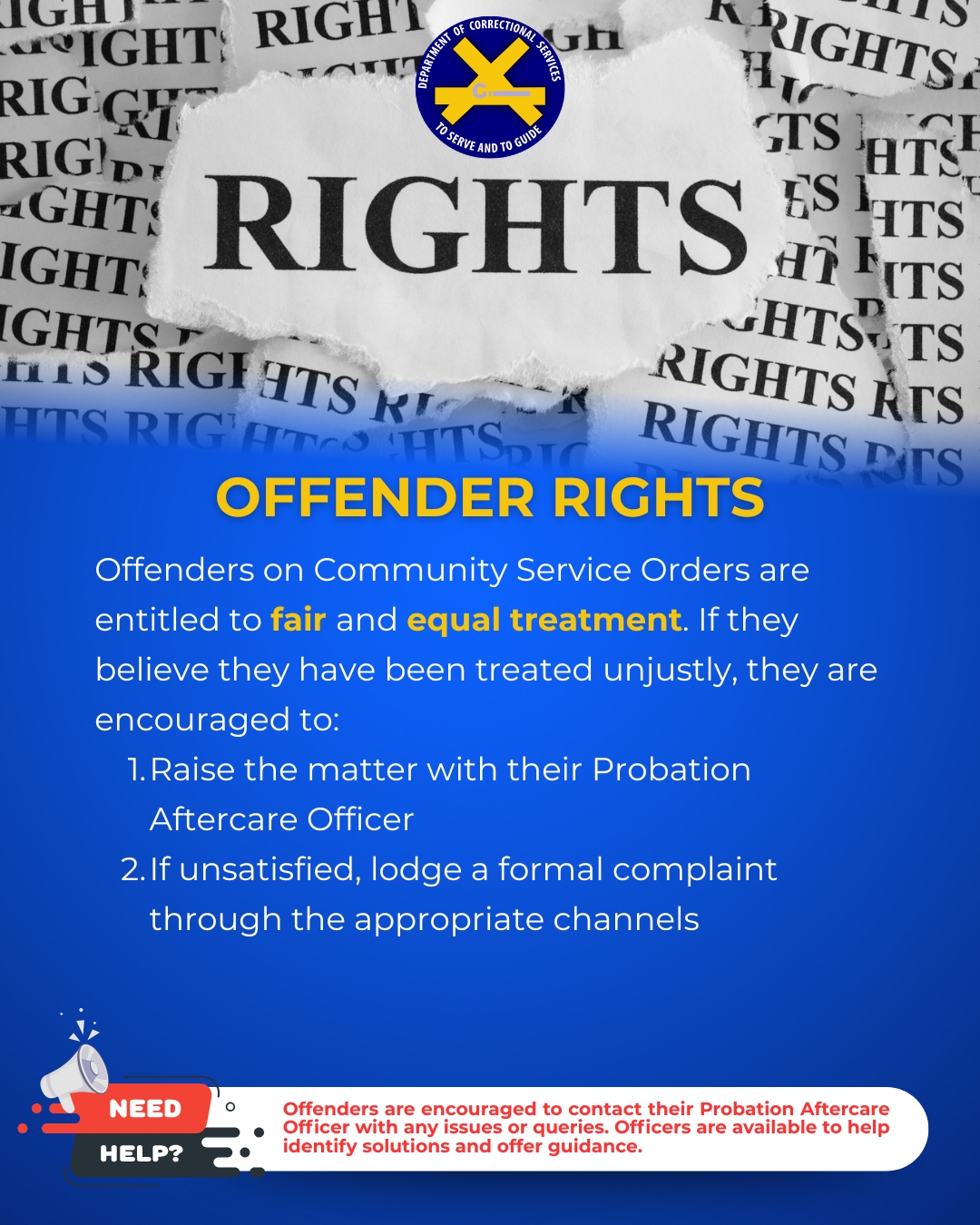
Home / Probation (Community Corrections) / Community Service Order Programme

A Community Service Order is a non-custodial sentencing option available to the courts, where an offender aged 18 or over is ordered by a judge to carry out unpaid work in the community for committing a minor, non-violent offence. This is authorised under the Criminal Justice (Reform) Act, 1978 and is considered a practical alternative to short-term imprisonment.
Under the order, the offender is required to perform assigned tasks, arranged and monitored by a Probation Aftercare Officer and supervised by a representative from the agency where the work takes place. The number of hours varies:
Single offence: 40 to 360 hours
Multiple offences: Up to 480 hours
Non-compliance may result in the offender being brought back before the court for sentencing at the judge’s discretion.
A wide range of non-profit and public sector organisations can benefit from this programme, including:
Public hospitals
Children’s homes
Schools
Police stations
Courts
Public parks
Other governmental or community institutions
Tasks assigned typically include:
Cleaning and sanitation
Painting and minor repairs
Gardening and landscaping
Assisting the elderly or disabled
Where possible, the Probation Aftercare Officer will assign tasks based on the offender’s skills. In some cases, general tasks that require no special skill are offered.
The officer will also provide details on the project location and may supply necessary tools.
Certain individuals are excluded from receiving a Community Service Order:
Those without a fixed place of residence
Offenders convicted of serious crimes such as:
Murder
Offences involving firearms
Use or possession of imitation firearms
When the Order is Made
Once the court issues a Community Service Order, the process is as follows:
The court determines the total number of hours.
The Probation Aftercare Officer assigns the work location and shares the relevant rules.
The offender must begin work within seven (7) days of the court order.
A minimum of two hours per day or eight hours per week must be completed.
Work hours are documented on two attendance cards—one retained by the offender and the other by the supervising agency.
Offenders are expected to:
Follow instructions provided by the Probation Aftercare Officer
Notify the officer of any change in address or personal circumstances
Report on time and complete the required hours
Cooperate with both the agency supervisor and the Probation Aftercare Officer
Work collaboratively and treat others with respect and fairness
If an offender fails to comply with any requirement of the Community Service Order, they may be summoned back to court. The court may:
Allow the order to continue
Impose a fine
Revoke the order and issue a custodial sentence
